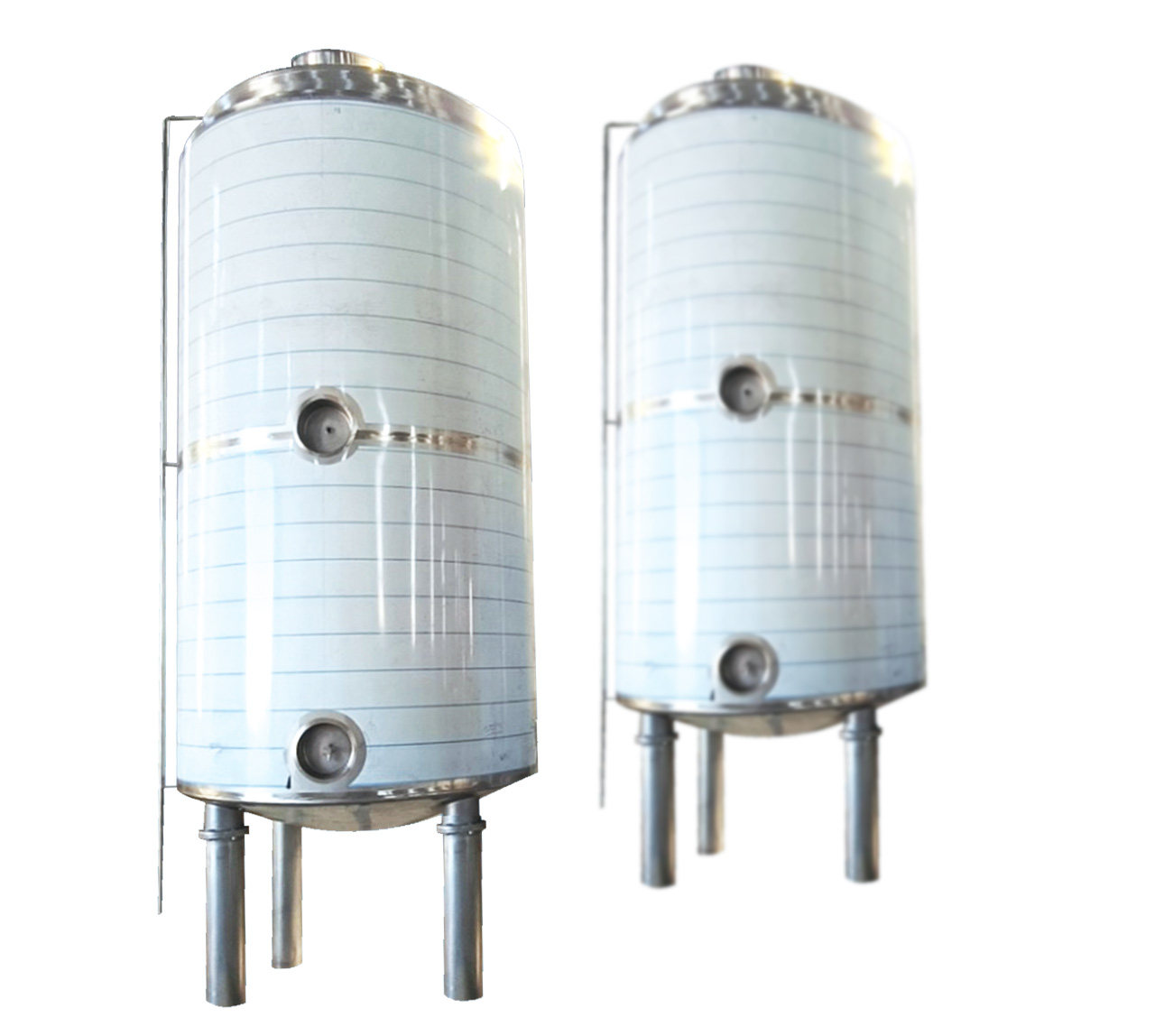Tanks used during the production, storage and processing of traditional fermented products such as vinegar, pickle juice and turnip juice play a major role in preserving the quality and flavor of these products. The production processes of such liquids can be optimized with the right equipment selection. It is critical that tanks are hygienic, durable and compliant with food standards, especially in fermentation processes.
Production
» Fermentation Tank
» Acetator
» Turnip Juice Storage Tank
» Pickle Brine Preparation Tank

General Features
1. Material:
Stainless Steel: 304 or 316 quality stainless steel provides resistance to chemical reactions during fermentation and offers a hygienic surface.
Due to its resistance to acidic and salty environments, it is widely used in the production of vinegar, pickle juice and turnip juice.
2. Design Suitable for Fermentation:
There are special ventilation systems or valves to control gas release during fermentation.
Mixing systems are integrated when necessary for the homogeneous progress of fermentation.
3. Coating and Insulation:
Tanks can be designed with insulation to provide temperature control.
Heat or cold protection jackets ensure that fermentation takes place under ideal conditions.
4. Volume Options:
There are capacity options ranging from 500-1,000 liter tanks for small-scale production to 50,000 liters for industrial production.
5. Hygiene and Cleaning:
CIP (Cleaning in Place) System allows for fast and effective cleaning.
The inner surface of the tanks is processed smoothly, minimizing the risk of microbial formation.
6. Fermentation and Storage Conditions:
Vinegar: Since an acidic environment is formed during fermentation, tanks must be resistant to high acid.
Pickle Juice: Material quality is important so that salt water does not damage the tanks.
Turnip Juice: Appropriate temperature and hygiene conditions must be provided to prevent loss of natural color and taste.
Areas of Use
1. Vinegar Production:
Oxygen must be provided in a controlled manner for the active work of vinegar bacteria. Stainless steel tanks support this process.
Temperature and hygiene control in tanks are important for unpasteurized natural vinegars to last a long time.
2. Pickle Juice Production:
Ideal tanks are required for salt water and acidic mixtures to enter the fermentation process in a balanced manner.
Special outlet valves can be used to control gas release during fermentation.
3. Turnip Juice Production:
Temperature and oxygen control are provided for the bacteria to work properly in the natural fermentation of turnips.
Mixing systems can be preferred in tanks to prevent sediment formation and to obtain a homogeneous mixture.
Advantages
Hygienic Production: Stainless steel tanks are resistant to acids and salty environments formed during fermentation, which provides a hygienic production environment.
Durability: Long-lasting and resistant to impacts and chemical corrosion.
Temperature Control: Insulated tanks ensure that fermentation continues at the right temperature.
Modular Design: Can be customized with capacity and additional features according to need.
Easy Cleaning: Provides effortless cleaning thanks to in-tank cleaning systems (CIP).
Things to Consider When Choosing a Tank
Material Quality: Stainless steel should be selected according to the chemical environment of fermentation.
Capacity: A tank of appropriate size should be selected according to the production volume.
Aeration and Pressure Control: Valves that ensure the safe release of gases formed during fermentation should be preferred.
Hygiene Standards: Tanks must comply with food safety standards (ISO 22000, HACCP, etc.).
Automation: It is recommended to integrate temperature and mixing systems into automation to optimize the production process.
